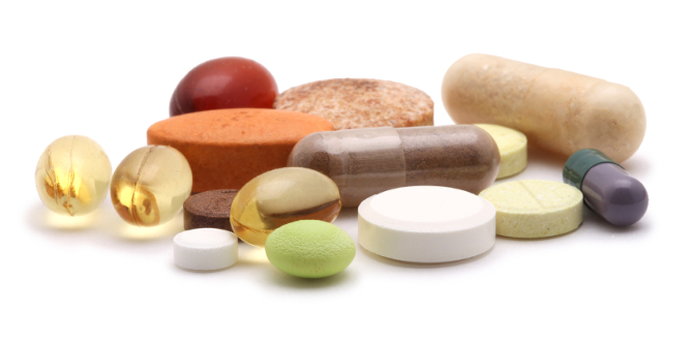Micronutrients are basically vitamins and minerals. The body requires micronutrients in small amounts as compared to protein, carbohydrates and fats, which are macronutrients. For example, to make energy, your body uses carbohydrates as fuel along with B vitamins, or coenzymes, as the "spark."
Government food guides talk about a balanced diet being like a pyramid. You get the lesson from these guides that sweets and fatty foods are not at the foundation of the pyramid. The same is true with micronutrients. For example, you need about twice as such calcium as magnesium.
A healthy diet is the foundation of good nutrition, not popping pills. It is a challenge to create a healthy diet because of the time and energy required to research, shop, cook, plan, and experiment. It is even harder with a family or housemate that shares in a common food budget.
Do I Need a Supplement?
In my opinion, it is smart to take a broad spectrum multivitamin as part of a healthy diet because they are formulated to mimic what your body needs. But not all multivitamins are created equal. The better ones have higher quality minerals and vitamins and that means the body will use more. In addition, certain micronutrients are needed in higher levels at certain times of your life. For example, it is beneficial to take more vitamin C during times of sickness.
Here are some suggestions for a healthier diet:
- Have a protein shake in the morning with an added green supplement powder. Also, many supplement companies have created high antioxidant blends made with concentrated berries or greens. These products tend to be alkalizing and promote tissue oxygenation.
- Drink herbal teas. Many herbs are safe to drink daily and have high levels of micronutrients. For example, nettle tea is high in iron.
- Lemons are rich in vitamin C and bioflavonoid so adding lemon to a glass of water each day can help strengthen the immune system. Lemon juice may be acid, but they are alkaline in the body because of their rich mineral content.
- Instead of table salt, switch to a grey colored sea salt, or begin to use sea vegetable seasonings like dulse flakes. We need trace minerals that are found in the ocean, like iodine, which is essential for thyroid healh.
All The Colors Of The Rainbow
Eating a variety of fruits and vegetables will help guarantee that your diet is rich in all the micronutrients. Much of today's food is stripped of its nutrition because of food refinement and heat processing. For that reason it is important to choose whole foods, organic when practical, and to have it prepared consciously.
Avoiding overly processed foods like canned vegetables, white flour and sugar can help spare the body its nutrient stores. Buying high quality ingredients such as cold pressed oils, raw and unsalted nuts/seeds, whole grains, and growing a garden will help ensure your body has access to a diet that is rich in micronutrients.
Aaron Ander is a holistic health care consultant and educator with a background in nutrition, iridology, reiki, biochemistry, and muscle testing. With many personal health challenges as a child, Aaron struggled his way to good health and overcame disease using natural means alone. This success led to a diploma in Applied Holistic Nutrition and a relentless pursuit of the roots of illness. He has visited and lived on organic farms in an effort to understand what constitutes a truly holistic life. Aaron currently lives with family in Nelson, British Columbia, Canada, where he writes articles for the holistic health community and has a healing practice. To contact Aaron please visit www.naturalpathhealing.com.



